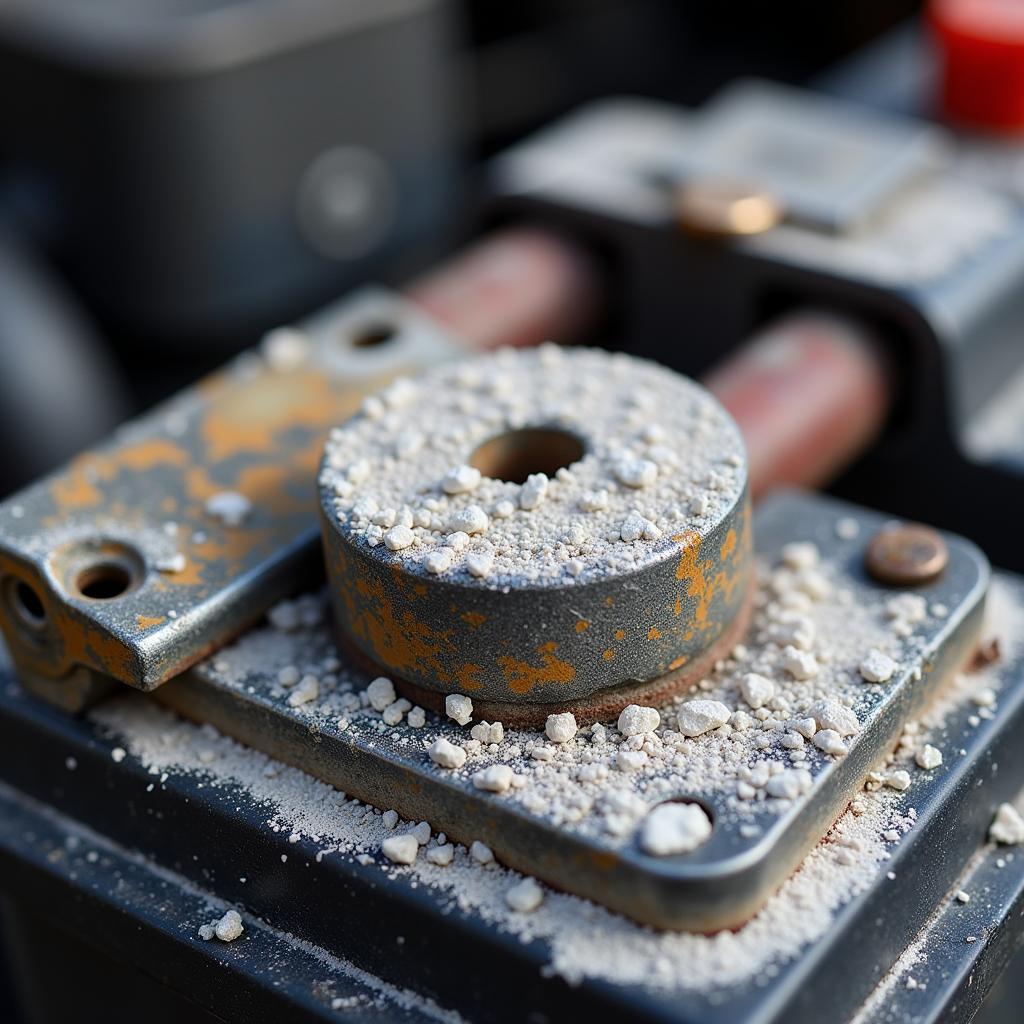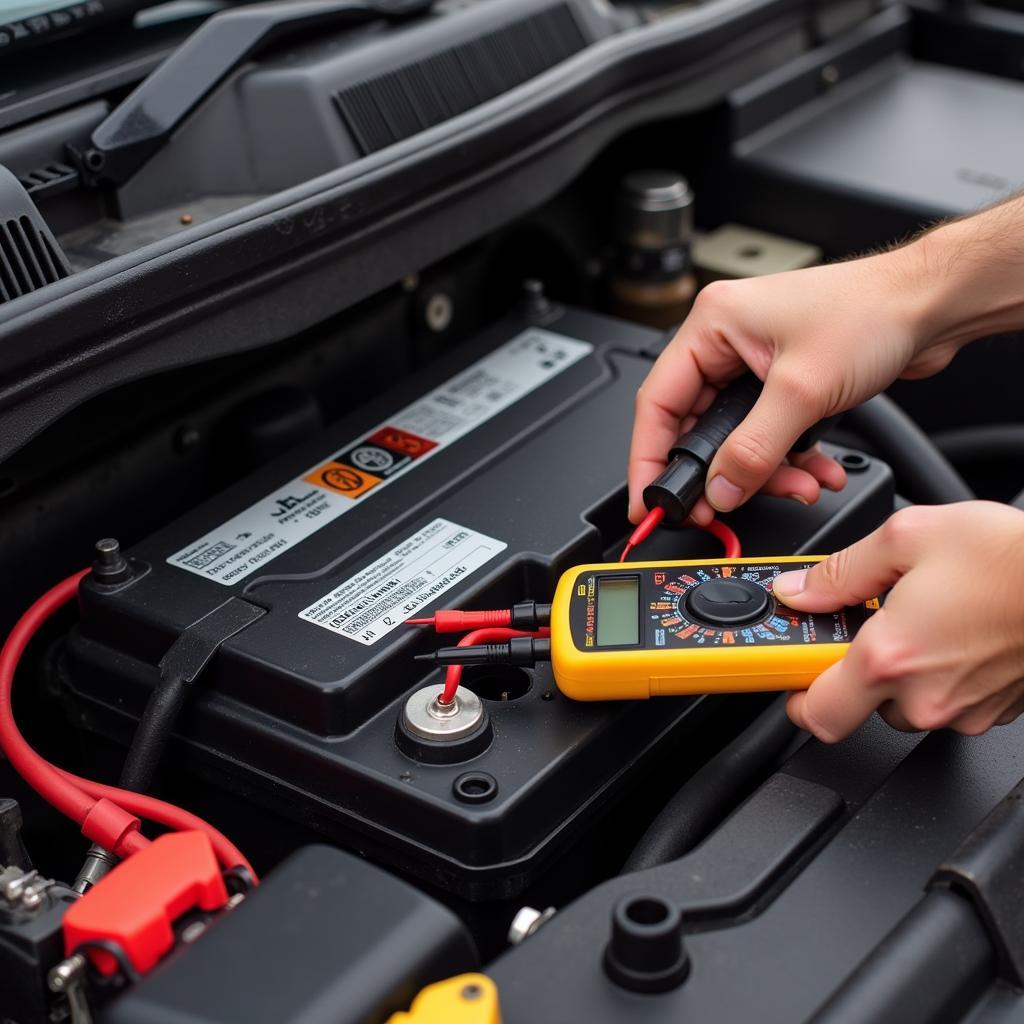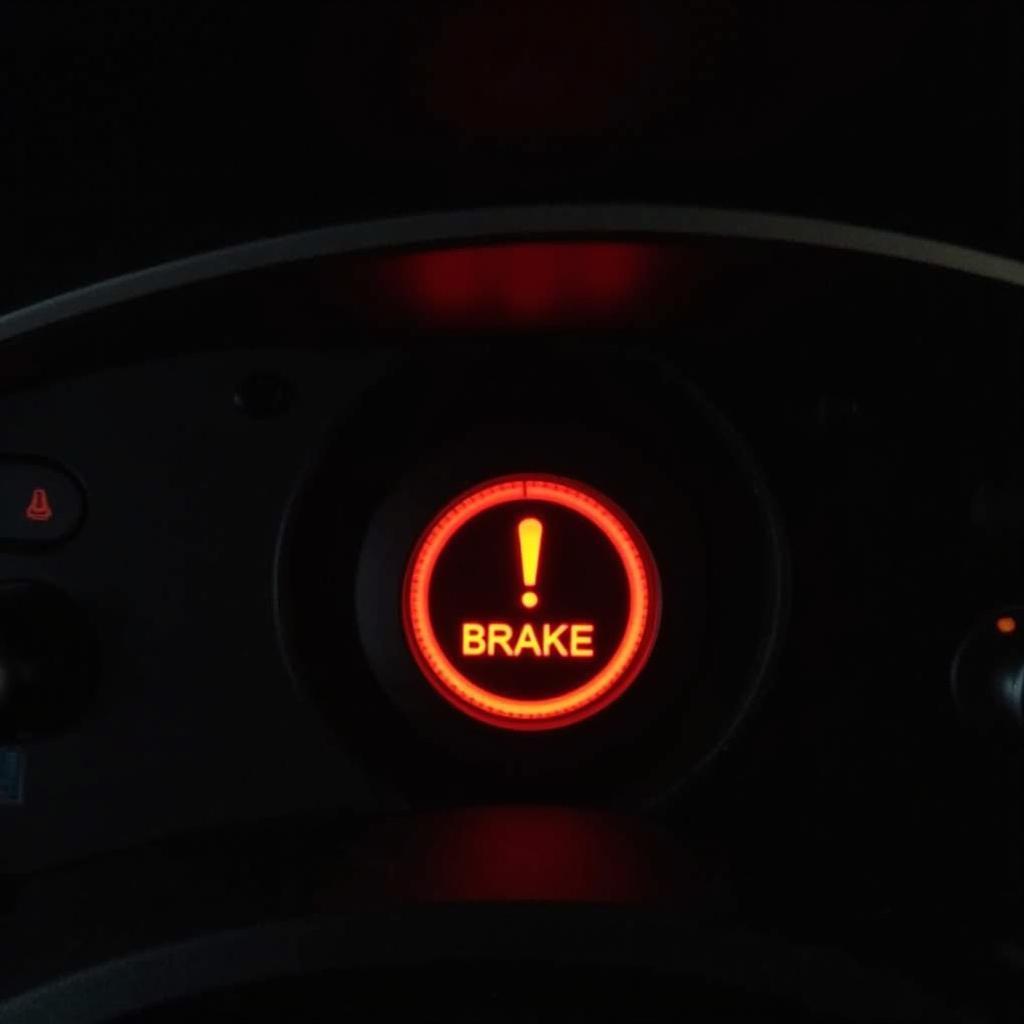A car battery discharging fast can be a major inconvenience, leaving you stranded and frustrated. This issue can stem from various causes, ranging from simple fixes like a loose connection to more complex problems requiring professional diagnosis. Understanding the potential culprits and knowing how to troubleshoot them can save you time, money, and unnecessary headaches.
Why is My Car Battery Discharging So Fast?
Several factors can contribute to a rapidly discharging car battery. Identifying the root cause is crucial for effective resolution. Is it a faulty alternator, a parasitic drain, or perhaps just an old battery nearing the end of its lifespan? Let’s explore some common reasons:
Common Culprits Behind a Fast Discharging Car Battery
- Old Age: Batteries have a limited lifespan, typically 3-5 years. As they age, their ability to hold a charge diminishes.
- Faulty Alternator: The alternator recharges the battery while the engine is running. A malfunctioning alternator won’t charge the battery properly, leading to a rapid discharge.
- Parasitic Drain: Even when the car is off, certain electrical components can continue to draw power, slowly draining the battery. This can be caused by faulty wiring, malfunctioning devices, or even leaving interior lights on.
- Extreme Temperatures: Both extreme heat and cold can negatively impact battery performance and lifespan.
- Short Trips: Short drives don’t give the alternator enough time to fully recharge the battery, especially after using power-hungry features like the headlights or heater.
- Corrosion: Corrosion on battery terminals can impede the flow of electricity, hindering charging and discharging.
 Corroded Car Battery Terminals
Corroded Car Battery Terminals
Troubleshooting a Fast Discharging Car Battery
Diagnosing the problem requires a systematic approach. Here’s a step-by-step guide:
- Visual Inspection: Check the battery terminals for corrosion. Clean them with a wire brush and baking soda solution if necessary.
- Battery Test: Use a multimeter or a battery tester to check the battery’s voltage. A fully charged battery should read around 12.6 volts.
- Alternator Test: With the engine running, the voltage should be around 14 volts. A lower reading indicates a potential alternator problem.
- Parasitic Drain Test: With the car off and all accessories turned off, use a multimeter to measure the current draw. A drain of more than 50 milliamps suggests a parasitic drain.
 Mechanic Testing Car Battery with Multimeter
Mechanic Testing Car Battery with Multimeter
How to Prevent Car Battery Drain
Preventing a fast discharging battery is often easier than dealing with the consequences. Here are some preventative measures:
- Regular Maintenance: Have your battery and charging system checked regularly by a qualified mechanic.
- Turn Off Accessories: Ensure all lights, radio, and other accessories are turned off when the car is not in use.
- Limit Short Trips: Try to combine short trips or allow the car to run for a longer period to fully recharge the battery.
- Keep Terminals Clean: Regularly clean the battery terminals to prevent corrosion.
Remote Diagnostics and Software Solutions
Modern vehicles often rely on complex electronic systems. Remote diagnostics and software programming can sometimes address underlying software issues contributing to battery drain. Consult a specialist for remote diagnostics and software solutions tailored to your vehicle’s make and model.
“Remote diagnostics offer a quick and efficient way to pinpoint the root cause of battery drain, often without requiring a physical visit to the workshop,” says John Smith, Senior Automotive Electrical Engineer at Advanced Auto Solutions.
 Car Diagnostic Software on Laptop
Car Diagnostic Software on Laptop
Conclusion
A car battery discharging fast can be a sign of various underlying issues. By understanding the common causes and following the troubleshooting steps outlined above, you can often identify and resolve the problem. Regular maintenance and preventative measures can significantly extend the life of your battery and prevent future discharge issues. Remember, for complex electronic problems, consulting a specialist in remote diagnostics and software solutions is crucial for effective and efficient repair. Don’t let a dead battery leave you stranded – take proactive steps to keep your car running smoothly.
FAQ
- How long does a car battery typically last? Typically 3-5 years.
- What voltage should a fully charged car battery have? Around 12.6 volts.
- What is a parasitic drain? Electrical components drawing power even when the car is off.
- How can I test for a parasitic drain? Use a multimeter to measure current draw with the car off.
- Can extreme temperatures affect battery life? Yes, both extreme heat and cold can negatively impact battery performance.
- How can remote diagnostics help with battery drain issues? They can identify underlying software problems contributing to the drain.
- What is the benefit of regular battery maintenance? It can help prevent future discharge issues and extend battery life.
“Regular battery checks are a small investment that can save you from the major inconvenience of a dead battery,” adds John Smith.

